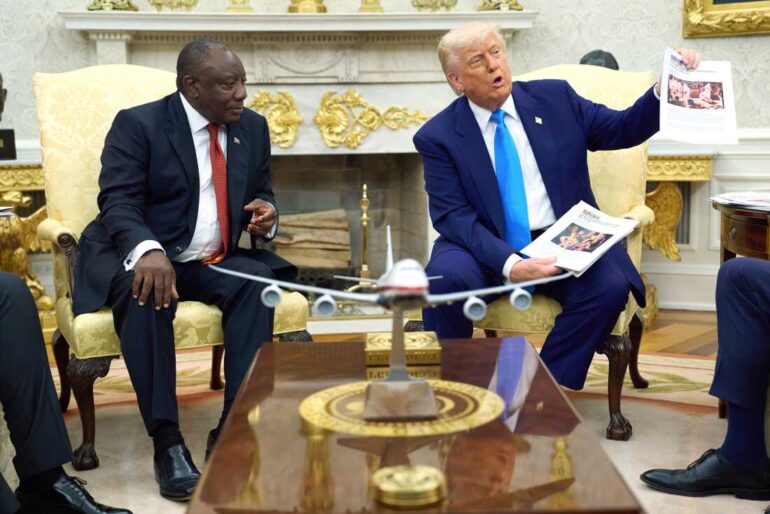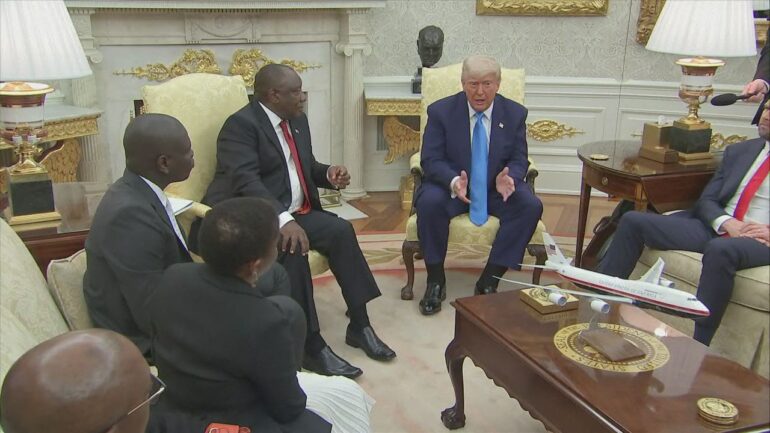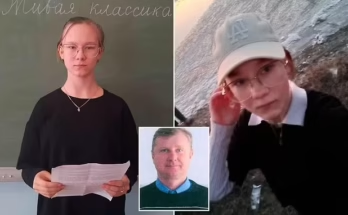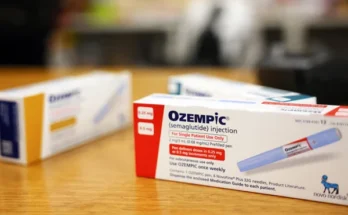A stunning exchange between the South African president and Trump, about what was called a serious ‘genocide’ accusation. Well, this has a real twist nobody expected – a bit of a shockwave through the diplomatic world – and what if anything will happen from something that’s an extremely serious allegation?

This has triggered a huge debate with most demanding a thorough probe in to the incident.” As matters stand and are updated now the possibility of this genocide charge impacting relations between the two
Key Takeaways
- The Trump-South Africa rift over a ‘genocide’ charge, explained.
- The stakes here are huge, diplomatically.
- Wherein many have already called for an impartial investigation into the matter.
- So as it is now, with an effect of such kind of bilateral relations to some extent, the result.
- Notable changes that the whole world is monitoring.
The Meeting That Prompted ‘Genocide’ Accusation
It happened during a routine diplomatic meeting when Trump suddenly confronted Ramaphosa with the word ‘genocide. That in turn has made that meeting among the most controversial, if not the most, ever, not to mention what it means for diplomacy in the future.
Meeting Setting and Context
The encounter between Trump and Ramaphosa was one of diplomacy between the two leaders, who were each accompanied by respective delegations. As it happened, the meeting was a pretty thrilling affair, but only because what began cordially soon grew very dramatic and fraught when Trump said that he was opposed to “genocide” in South Africa.

Major reasons for tension:
- And misunderstandings about land redistribution in South Africa.
- Narratives of farm attacks
- Previous remarks by Trump on South Africa-related issues
A timeline of the diplomatic meeting
During which:
- They greeted each other and began discussing bilateral trade.
- He unexpectedly levels a ‘genocide’ accusation
- Ramaphosa jumps up, and starts to defend South African policies.
- The two have a heated altercation
- The clash between Trump and Ramaphosa demonstrates the hazards of international diplomacy and how misunderstandings could quickly become full-blown controversies.
The confrontation between Trump and Ramaphosa highlights the complexities of international diplomacy and the potential for misunderstandings to escalate into major controversies.
Trump Ambushes South African Leader With ‘Genocide’ Claim: A Scene of Political Assassination
In a tense diplomatic encounter, Trump leveled a serious accusation against South Africa, claiming genocide was taking place. This unexpected remark was made during a meeting intended to strengthen US-South Africa relations, adding a layer of complexity to the already intricate diplomatic dynamics between the two nations
Exact Quotes From Trump
What Trump said: “There’s a lot of killing going on, a lot of — lot of — lot of murder, if you will, in South Africa.” Attendees are startled by this, which comes out of the blue without explanation or any supporting evidence. The serious nature of the accusation prompted an immediate reaction, not only from Ramaphosa but from others at the meeting.
Ramaphosa’s Prompt Reaction
Ramaphosa fired back by defending South Africa’s human rights record and insisting that the country was “ruled by law” and protecting its citizens. He said the story about the genocide was false saying it contributed much to tarnish the image of the country in the international scene. It was a stark contrast: Ramaphosa’s cool-and-collected response to Trump’s in-your-face charge — both men tip-toeing through a diplomatic tightrope with remarkable speed.
Other participants also had thoughts to share about the encounter.
The other members of the meeting indicated they were surprised and concerned by Trump’s allegation. Some said the claim seemed to have comments from shoddy data or questionable narratives. It also was a useful rejoinder to how political disputes could strain US-South Africa relations, a friendship rooted in mutual engagement and respect.
FROM OUR OWN CORRESPONDENT Keynote Address: The State of South African Politics Today
That’s the backdrop to Trump’s comments against South African President Ramaphosa. At the core of the issue are the unaddressed historical injustices the country is still dealing with and the reforms the country must undertake.
Land Reform in South Africa
Land reform in South Africa is a critical aspect of post apartheid reconstruction. A history of dispossession of the black majority has marked the social context of land ownership in South Africa.
Historical Context Of Land Ownership
Setting Of The Times Land Ownership In the first Ecole Act, the first of four, Bartolommeo Imbert described ownership and the right to use land.
And the next chapter is about how laws and regulations under apartheid resulted in a concentration of land among the white minority, who largely held title to land, and white minority landlessness or limited access to land among the black majority. It is this historical injustice that has been one of the driving forces behind the land redistribution version of the current government.
Government of the day interventions
Several programs addressing land redistribution and restitution have been introduced by the government in South Africa. These include legal changes and schemes aimed at assisting previously disadvantaged individuals with access to land.
Violence Against Farmers: The Real and the Imaginary
White farmers in South Africa: A target of violence amid country’s divisions. The debate about violence against white farmers in South Africa is not new. These farm attacks are the story’s core theme, but some stories describe them as one aspect of a wider-scoped campaign of violence, aimed mainly at the nation’s white farmers; others as part of South Africa’s more general crime problem.”
The History of Trump’s Genocide Comments
Trump’s charge of genocide in South Africa has led to heated debates… but what’s behind the statement? To trace the origins of Trump’s allegations of genocide, it’s worth looking also at his prior involvement in South Africa, the contexts which might have shaped his picture of the situation there, and how such claims have been received in the conservative media.
Trump’s Earlier Remarks on South Africa
Trump has also made several comments about South Africa, particularly about land reform and attacks on farmers. Conservative media have often quoted his criticism of itself to steer public debate on the matter. For example, Trump has been worried about what he says is the persecution of farmers in South Africa.
Sources Influencing Trump’s Perspective
It is important to trace the sources that have shaped Trump’s views regarding South Africa. Conservative outlets and some interest groups have raised concerns about the situation in South Africa, possibly influencing Trump’s view. “These sources tend to paint a picture of the white farmers’ situation in South Africa as a major human rights issue,” he continued.

Conservative Analogues on the Claims
The history of farm attacks and violence in South Africa has been extensively reported in conservative media, often as part of the broader story of genocide or ethnic cleansing. This coverage has fed into a larger overarching narrative that Trump has played into with his genocide accusation. The restatement of those claims in the press can greatly shape the public and policy debates.
Placing all these aspects into the forefront, it becomes apparent that Trump’s genocide allegations are part of an even greater.
Response from the South African Government
Following Trump’s controversial remark, the South African government had an official reply, a reaction to the genocide claim and its connotations.
Ramaphosa’s Comments After the Meeting
After holding discussions with Trump, President Ramaphosa dismissed the genocide allegations as unfounded and without evidence. He stressed that accurate information and knowledge was required to ‘to unpack the complexities of the land reform debate in South Africa’.
Ramaphosa highlighted that the South African government is committed to addressing the challenges faced by farmers, but through legal and peaceful means.
Reactions by the South African Foreign Ministry
South Africa’s Foreign Ministry issued a statement that condemned Trump and called his remarks “misinformed” and “alarming.” The ministry advocated for calm and for the international community to carefully assess the facts of the situation within South Africa.
The government’s response itself contained a list of bullet points, to clear the fog:
- The number of farm murders is not a sign of genocide.
- Attempts to reform land ownership are legitimate and legal.
- South Africa cherishes its diplomacy.
Fact-Checking the Genocide Accusation
The genocide claim about South Africa from Trump deserves to be checked out, as it has ignited a firestorm. To determine the accuracy of this charge, criminal statistics, expert analysis on farm attacks, and the definition of genocide under international law must be taken into account.
Crime Stats South Africa Open Data Statistics and Analysis in South Africa
South Africa’s crime figures reveal the context of the here and now. The country’s crime rate has varied over the years. However, different crimes and their impact on the farming community need to be dealt with differently. Farm attacks and murders are especially disturbing but they must be seen in the context of the general crime environment.
Expert Analysis on Farm Attacks
Leading minds have placed varying takes on farm attacks in South Africa. Some say these are awful and sad, but not elements of genocide. Others highlight that the targeting of farmers can be viewed as part of wider-pattern violence. Expert analysis suggests that understanding the motivations behind these attacks is crucial to determining their characterization under international law.
Understanding Genocide in International Law
Genocide is defined by the United Nations Convention on the Prevention and Punishment of the Crime of Genocide as acts committed with intent to destroy, in whole or in part, a national, ethnical, racial or religious group. The key element is intent to destroy a particular group. Whether the farm attacks in South Africa qualify under this definition requires an assessment of the available evidence within that legal framework.
In short, a nuanced read of the crime stats, experts’ takes on farm attacks, and the legal definition of genocide is what fact-checks the charge against South Africa. By looking at these things, we get a better sense of the situation and what such charges imply.
International Reactions to Trump’s Accusation
Global leaders and organizations have issued statements on the accusation by Trump against South Africa. It is in such events that international relations manifest as a complicated web. Reactions have ranged, representing the variegated perspectives and interests of different countries and international bodies.
African Nations
African countries responded rather swiftly to the allegations made by Trump, worried about what it could mean for the stability of the region. The statement of which is best exemplified by that of the African Union, which undertook to issue a statement in rejection of the accusations and calling for calm. This, along with other countries that extended their support to South Africa, demonstrated how critically important solidarity in Africa is.
Statements by Global Political Leaders
Political leaders have made their statements on the issue. It includes countries like China, Russia, and the European Union whose leaders have typically issued statements of restraint and peaceful resolution through diplomacy. They highlighted “diplomatic dialogue as a means of resolving any issues that may exist between the United States of America and South Africa”.
The stance of the United Nations and some human rights groups
The United Nations, along with human rights organizations, is interested in what Mr. Trump has said. The UN has not come out and made a direct statement regarding the allegations, but has rather continued to reaffirm its commitment to promoting human rights and the rule of law all over the world. Human rights organizations have been more vocal; they questioned on what basis Mr. Trump made such claims and called for an investigation.
Historical Context of US-South Africa Relations
The relationship between the United States and South Africa is a long one, marked by significant transformations in diplomatic ties since the end of apartheid. It is a relationship characterized by cooperation and tension—first within the wider world context, then moving inwards to reflect local contexts.
Post-Apartheid Diplomatic Relations
Following the end of apartheid, the US and South Africa formed new diplomatic relations. The US supported the democratic transition in South Africa. This is when more collaboration was seen on issues such as trade and health, and security: The US was an important partner in economic development within South Africa. Bilateral trade agreements were made to string together the economies.
Previous tensions and collaborations
There were, and still are, positive developments notwithstanding tensions, especially on economic sanctions and human rights. But the collaboration in combating HIV/AIDS and regional stability stands to be much better. The relationship between shared interests, cooperation, and disagreement about how to deal with certain issues has characterized it.

The historical context of US-South Africa relations provides a backdrop for understanding the current diplomatic incident involving Trump’s ‘genocide’ accusation. The complex interplay of cooperation and tension continues to shape the bilateral relationship.
Public Opinion and Social Media Response
The social media response to the allegations by Trump against South Africa was a firestorm. This incident has set off a conversation around the world about what is happening.
How Americans Reacted
The American public has not reacted uniformly. While some people are now supporting what Trump is doing, others have taken a contrary view of his approach. At present, there is an avalanche of comments, memes, and articles on social media reflecting diverse perspectives.
Public Opinion in South Africa
In South Africa, the public sentiment has largely been defensive. People feel that it is unwarranted for Trump to interfere in their internal affairs, and therefore, they are quickly pushing him away. This has placed the government in a position to be applauded by citizens for its measured response.
| Aspect | American Public | South African Public |
|---|---|---|
| Support for Government | Mixed | High |
| Criticism of Trump | Present | Prevalent |
Political Implications for Both Leaders
The Trump-Ramaphosa diplomatic spat means a lot politically for both of them. The fight has unleashed a maze of reactions that are impacting not just their political standings but also the wider US-South Africa relations.
Effect on Trump’s Political Status
What Trump said about Ramaphosa might make his political base stronger, especially among some conservatives who were critical of South Africa’s land reform policies. But this is likely to be seen as a misjudgment of the administration, will cost him moderate voters, and set off international criticism. The rebound in Trump’s fortunes will turn on how this plays out and whether his team can contain the damage.
Consequences for Ramaphosa Administration
This puts Ramaphosa together with his administration in a challenge on how credible they can be in handling international relations from now henceforth. The South African government will have to carefully maneuver this diplomatic row in order to keep up good domestic support as well as maintain cooperation from the international community. How Ramaphosa will respond to this situation will be an immediate determinant of these long-term effects.

Broader Impacts on US-Africa Relations
It has set up a tangled implication for US-Africa relations, that is, the unexpected accusation on South Africa by Trump. For sure, it has raised concerns about what will happen to those bilateral ties between the US and African nations.
Economic Considerations
The economic effects of this diplomatic row could be huge. Potentially, it may impinge on the already existing trade pacts and investments between the US and South Africa, hence triggering a process of reconsideration in economic partnerships. New challenges may be confronted by US businesses that have stakes in South Africa; consequently, there might be an alteration in bilateral trade flows between these two countries.
Diplomatic Fallout
On a diplomatic level, it has already strained ties between the two countries. Trust and cooperation, which form the bedrock of international diplomacy can be compromised for better collaborative efforts in security, health, and environmental issues. This might also affect how other African nations deal with or engage the US going forward.
The aftermath of this episode highlights the necessity that diplomatic efforts be directed in a careful manner so as to mitigate any long-term damage that may result to US-Africa relations. As the case stands presently, with developments yet to be made, it is indeed going to be an international community watch on how better these two sides can navigate what has now become a very challenging situation.
Conclusion: Moving Forward After the Diplomatic Incident
The diplomatic exchange between Trump and Ramaphosa, which ignited massive political controversy, created a vacuum concerning the way forward for US-South Africa relations.
Besides marring international relations, it brought to light how complicated the policies on land reform in South Africa are.
As the situation surrounding their post-confrontation challenges both leaders has yet to be fully disclosed.
The world watches, aware that the outcome could have a lot of implications for global politics and international relations.
Ultimately, the path forward will depend on diplomatic efforts and a willingness to address the underlying issues that led to the “Trump ambushes South African president with ‘genocide’ accusation.”
FAQ
What was the ‘genocide’ accusation made by Trump against South Africa?
The accusation refers to Trump’s claim that South Africa was committing genocide against white farmers, although the specifics and evidence behind this claim are disputed.
How did South African President Ramaphosa respond to Trump’s accusation?
Ramaphosa responded by defending South Africa’s actions and questioning the basis of Trump’s claim, emphasizing the need for accurate information and understanding of the local context.
What are the land reform policies in South Africa, and how do they relate to the ‘genocide’ accusation?
South Africa’s land reform policies aim to address historical injustices in land ownership. While these policies are controversial and have been criticized, they are not directly related to genocide.
What is the definition of genocide according to international law?
Genocide is defined as acts committed with the intent to destroy, in whole or in part, a national, ethnical, racial, or religious group, including killing members of the group, causing serious bodily or mental harm, and other specified acts.
How have international organizations like the United Nations reacted to Trump’s accusation?
The United Nations and other human rights organizations have approached the issue with caution, emphasizing the need for a thorough understanding of the situation on the ground before making judgments.
What are the potential diplomatic repercussions of Trump’s accusation for US-South Africa relations?
The accusation has strained diplomatic relations between the US and South Africa, potentially affecting cooperation on trade, security, and other issues.
How has social media influenced public opinion on Trump’s ‘genocide’ accusation?
Social media has played a significant role in shaping public discourse, with both supporters and critics of Trump’s accusation using platforms to share their views and mobilize support.
What are the implications of the incident for Trump’s political standing and Ramaphosa’s administration?
The incident has potential implications for both leaders, with Trump’s accusation potentially influencing his domestic political standing, while Ramaphosa faces challenges in maintaining national stability and international relations.
What are the economic considerations related to the diplomatic fallout between the US and South Africa?
The diplomatic tensions could have economic implications, including potential impacts on trade agreements, investment, and cooperation in areas like agriculture and mining.



